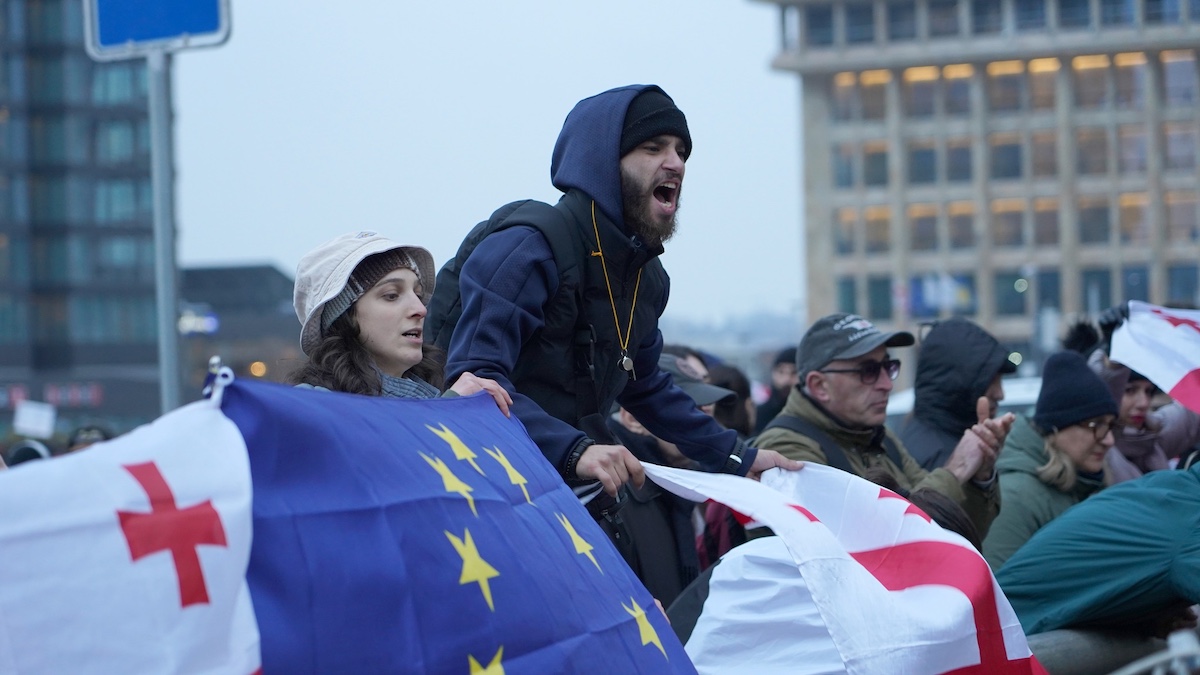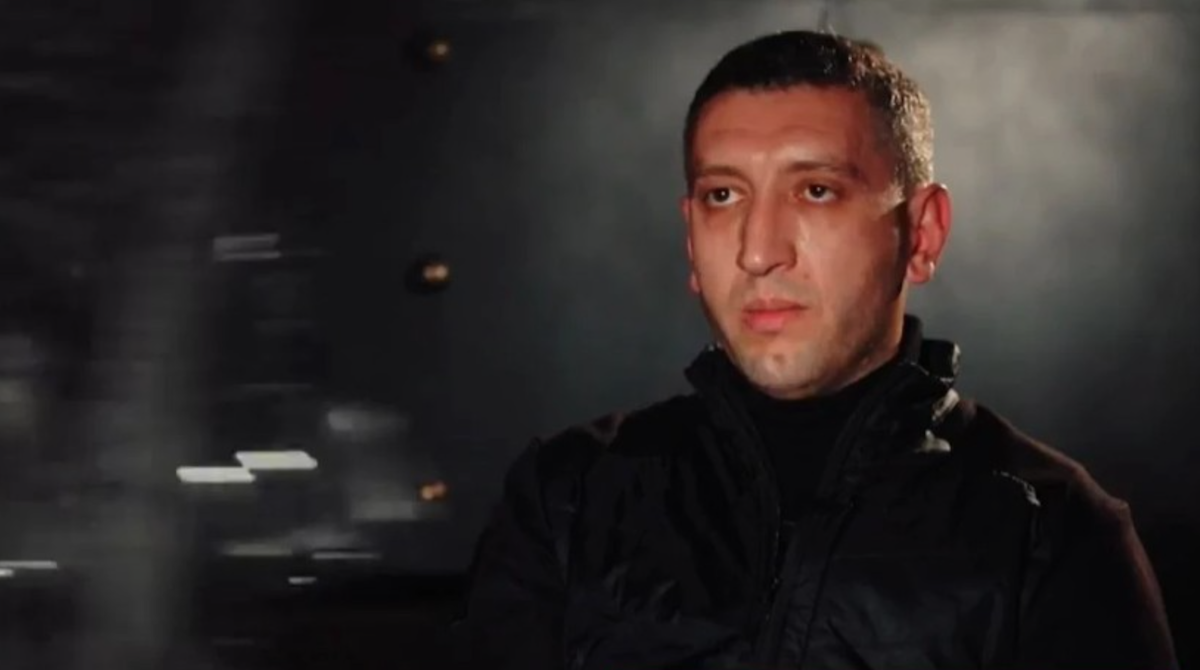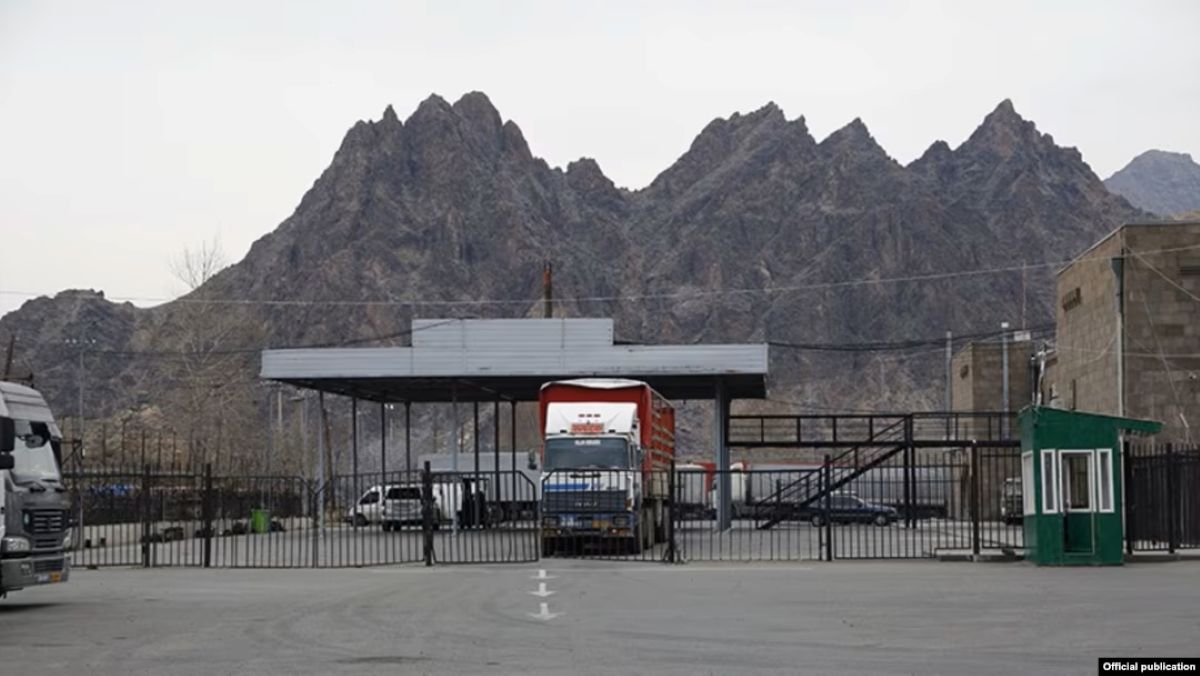Opinion: 'Violence, lawlessness, and creation of privileged clusters becomes new working style of Georgian police'
Georgian lawyer on Tbilisi Mall protest
“The predominant working style of the police has become violence, lawlessness, and the formation of privileged police clusters,” said Tamta Mikeladze, director of the Centre for Social Justice, commenting on the protest held on 2 February 2025 near Tbilisi Mall.
On 2 February at 16:00, demonstrators planned to merge protest marches near Tbilisi Mall and block the road to Dighomi for several hours. On 31 January, a day after the announcement of this action, Prime Minister Irakli Kobakhidze from Georgian Dream issued a special decree designating international highways as strategic sites.
As a result, during the 2 February protest, police arrested dozens of citizens, including politicians, and used physical violence against demonstrators.
The Georgian Young Lawyers’ Association has appealed to Prosecutor General Giorgi Gabitashvili, demanding a criminal case be opened against the head of the Special Tasks Department of the Georgian Interior Ministry, Zviad Kharazishvili, and calling for his suspension.
The organization’s statement references footage published by TV channel Pirveli, showing Kharazishvili attacking a protester.
Tamta Mikeladze on protest near Tbilisi Mall
“What did we see in the actions of the police at the rally near Tbilisi Mall?
- The police struggle to control crowds in large spaces.
Today, it became clear that the police have serious issues with crowd management and controlling situations in open areas. Today, the police effectively blocked the road themselves and staged their own march.
Former Interior Ministry official Irakli Shaishmelashvili’s statement that the system no longer has qualified personnel and that the police are weak in planning reflects reality.
This is a positive factor for protesters—poor planning by the police means a poor response overall and, therefore, weakness.
- The police force is increasingly staffed with unprofessional officers who resort to violence and insults. Many of them openly show loyalty to the head of the Special Tasks Department, Zviad Kharazishvili.
This means that the predominant style of police work has become violence, lawlessness, and the existence of authoritarian and presumably privileged police clusters. This will soon manifest in everyday life. In the families of these police officers, in their neighborhoods, and in their response to crimes, we will see serious human rights violations. They will extend beyond protests and occur daily against a wide range of citizens.
Police repression affects everyone and should concern everyone. If we fail to recognize the problem today, tomorrow will be too late.”
- The state repressive apparatus is losing its neutrality and becoming politicized. The police engage citizens in political discussions, punishing and scolding them for holding different opinions.
A politicized and talkative police force is harmful to the system itself. Haven’t we already seen internal conflicts between law enforcement officers or gangs? Believe me, one day this situation will “explode” on its own within the police ranks and Kharazishvili.
Meanwhile, the protesters have shown bravery, intelligence, and peacefulness.
Let’s acknowledge that today’s protest had more women. I know women who raised this issue within their families, saying it would be better for them to take to the streets today to defend their homeland. Women decided to take the blow upon themselves, while the police regime clenched its teeth in its thirst for new victims.”
Georgian lawyer on Tbilisi Mall protest




















